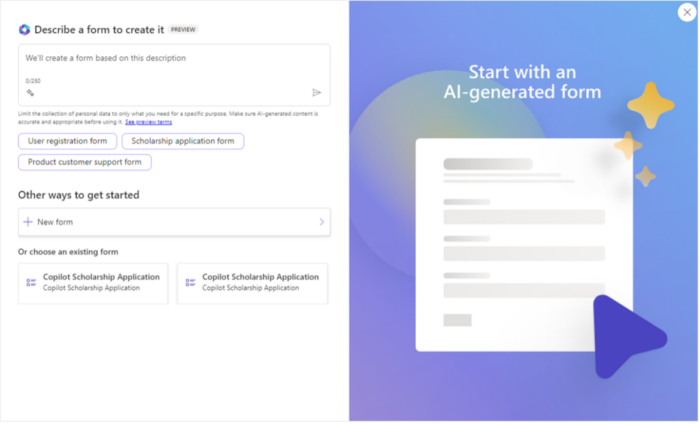CICERO PERSPECTIVE
What to consider
With the increasing adoption and use of Artificial Intelligence (AI), more and more businesses are realizing the competitive advantage that it can provide. AI, especially generative AI, has emerged as an effective tool that can be leveraged in proprietary knowledge bases (KBs) to improve global support services. By harnessing the power of AI, businesses can enhance their customer support, providing instant and accurate information that is personalized for the customer, reducing response times, and significantly improving overall customer satisfaction, as well as increasing employee retention and speeding up new agent onboarding.
Overview of Knowledge Bases
In this context, knowledge base (KB) refers to a large content repository where numerous useful documents and information are stored. At its essence, there are two types of KBs: Internal (Employee-Facing) and External (Customer-Facing). Traditionally, these have been in the form of a static document warehouse where customers or employees can search for relevant articles using keywords. Internally, this might look something like SharePoint where employees can search and find relevant company documents related to employee policies, SOPs, etc. Externally, an FAQ or searchable resource library for customers would be examples of traditional external KBs.
Integration of AI
With the integration of AI, knowledge bases have shifted from being these old, outdated, and cumbersome libraries to powerful sources of insights and answers that can enhance customer support and reduce operational costs.
Some of the benefits of an AI-powered KB include:
- Providing specific answers to users’ queries rather than displaying a search results page they have to sift through.
- Accepting user feedback on the responses it provides, learning from that feedback, and improving its answers.
- Automatically updating answers as the content in the KB evolves.
- Analyzing user search patterns to identify trends and then reorganizing content based on usage patterns and feedback.
- Translating the knowledge provided without having translated versions to pull from.
- Enabling customers to quickly get responses to the simpler, more frequent questions that are often asked.
Improving Global Support Services
In addition to the benefits outlined above, AI can be leveraged to improve global support services in three key ways. First, by enhancing the customer’s self-service experience. Second, by empowering an organization’s customer service agents. Third, by streamlining document processing to expedite the customer onboarding process.
Source: https://builtin.com/artificial-intelligence/ai-assistant
Generative AI in an External KB
By training and incorporating generative AI into an external KB, organizations can greatly improve the self-service digital channel that customers often turn to as their first point-of-contact with the company. This will enable customers to not only get their questions answered quickly via 24/7 support but will lead to a personalized experience that a static KB can’t provide. It will also aid the organization in identifying any potential knowledge gaps that might exist in their KB so that they can quickly address them. Additionally, by addressing common questions and issues through the self-service channel, customer service agents are freed to dedicate more time to solving complex issues and providing greater customer service experiences.
Source: https://www.salesforce.com/blog/three-ways-service-impact-generative-ai/
Generative AI in an Internal KB
Having generative AI in an internal KB will provide customer service agents with a powerful tool that enables them to quickly find the information they need so that they can more effectively serve customers. A recent study where an AI-based conversational assistant was introduced with customer support agents demonstrated that access to the tool led to a 14% increase on average in productivity, including a 34% improvement for novice and low-skilled workers. The researchers in the study also found that “AI assistance improves customer sentiment, increases employee retention, and may lead to worker learning.”
Source: https://learn.microsoft.com/en-us/power-pages/getting-started/add-form-copilot
Generative AI and Document Processing
In addition to AI integration into KBs, another key AI integration that positively impacts global support services is in the area of document processing. Document processing has traditionally involved manual data entry and other cumbersome tasks. Now, with AI, customer intake forms can be prepopulated, reducing the burden placed on customers or service representatives to fill in these forms. Generative AI can also quickly process any intake documents and extract the relevant information. Employees can then create standardized templates to ensure consistent extraction of relevant fields. This helps to streamline the entire onboarding process to quickly move customers from product interest to product use.
Conclusion
Leveraging AI in proprietary knowledge bases is not only a way to improve global support services but is also viewed as a competitive advantage that many organizations are already seeking to utilize. Business leaders would be well-served to consider how they might incorporate AI into their knowledge bases and other aspects of the customer journey in order to provide greater customer service, resulting in higher customer satisfaction and potentially stronger brand loyalty.
To learn more about how Cicero can help your organization transform its global support services to improve customer satisfaction and brand loyalty, please contact Jason Richards.
Jason Richards
Sr. Partner
Jason Richards is a Sr. Partner in Cicero’s strategy practice. In this role, Jason has provided a wealth of knowledge in strategy development and transformation engagements for Fortune 500 companies. His expertise also includes change management, sales operations, process improvement, supply chain management, customer lifecycle management, and risk management. He serves clients in Logistics, Energy, Financial Services, Digital Marketing & Technology.
Jason has earned an MBA and bachelor’s degrees in Business Management and Business Marketing from the University of Utah.

Start a Conversation
Thank you for your interest in Cicero Group. Please select from the options below to get in touch with us.



